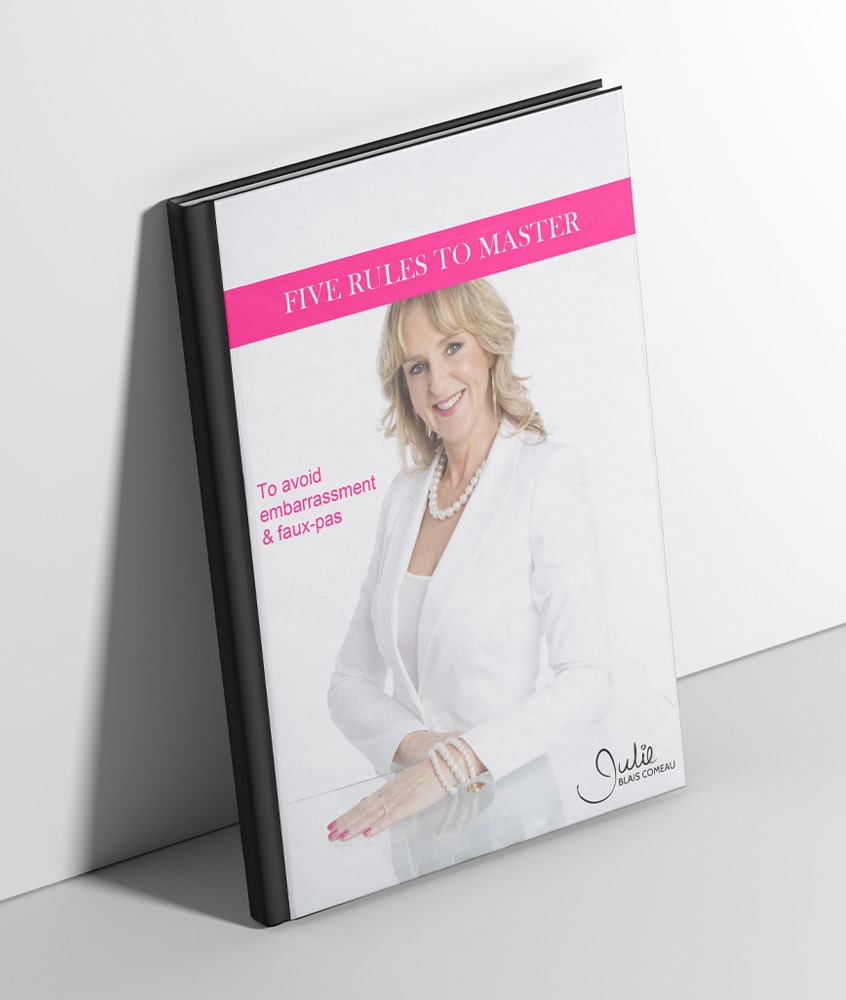
So you want to conduct business internationally?
As the famous quote, that refers to the journey of St. Augustine in Rome, says: If you are in Rome, live like the Romans; if you are elsewhere, live as they live.”
As a global entrepreneur, it is your responsibility to find out about professional practices elsewhere on the globe. Everything counts.
To avoid being paralysed, embarrassed by your lack of knowledge, insulting your host or guest and especially committing a diplomatic blunder, here are five things to consider before packing your suitcase for abroad or hosting a delegation on a mission.
Typically, the handshake is the universal business greeting.
The proper salutation may be a bow with an inclination of 5, 10 or 15 degrees and more, to reflect the other’s rank.
A namaste with palms joined at the chest level, neither above the head nor in front of your face, is appreciated amongst equals.
An abrazo is practiced amongst men.
A pōwhiri will have you nose-to-nose with a Māori warrior during a welcoming ceremony.
If you are a woman, you may have to avoid eye contact with men. Find out before you go.
The famous French bise may have you do a “pas de deux” as you wonder which side to start on: left or right?
And even if you are a nice person and have a very big heart, hugs are rarely the way to go, especially not during your first meeting.
A “V” done with your index and middle finger, palm facing you, is an insult, similar to the bad-mannered finger, in Australia.
The famous OK, formed with the thumb and the index is valued as delicious by our chefs while it is an obscene gesture in Latin America.
The rock n’ roll symbol shaped with the pinky and the index is perceived as vulgar in the Mediterranean bassin. Raise your thumb as well, and you just signed “I love you” in sign language.
A President is not a prime minister and a retired President is not called President.
Your Excellency, Your Honour or Your Royal Highness are forms of address used in correspondence and presentations. If you are not sure of how to call a VIP, refer to PSOW’s book Honor and Respect: The Official Guide to Names, Titles and Forms of Address by Robert Hickey with a foreword by Pamela Eyring.
Orders of precedence vary from one country or company to another and may change from one day to the next.
Even the placement of flags for an official photo displays the honours and recognition attributed to dignitaries.
Your introductions should reflect these charts. Should you introduce client to CEO or CEO to client?
We do not wear the same clothing to attend an official ceremony in a government building in Saudi Arabia at 10:00 am, versus a welcome cocktail under a tent on the beach in California.
Business Formal is different than Business Casual just as White Tie is distinguished from Black Tie.
The Cocktail dress code does not exist and Casual Fridays don’t include wearing jeans, unless your company accepts them.
A gift, wrapped in the color of death, or a set of DVDs that is not compatible with the electronic gadgets of the country badly complete a meeting that you had thought was positive.
An international visitor may receive similar gifts from his American counterparts when on a cross-country tour of the United States. Be original.
A well-wrapped and bow-tied gift may be beautiful to look at, but it is often difficult and time consuming to open. Also, one never knows where to dispose of the paper, bow or bag. Think and prepare for presentations before guests and cameras.
And after all, a thank you note is often the simplest and most memorable of courtesies. Click this link to find out how to write a thank you note in five steps and without repeating “thank you”.
Prior to organizing, allocating funds or briefing staff develop your intercultural intelligence. As my maternal grandmother said so well: “When in doubt, find out.”
Are you in a sticky situation? This blog is at your service. Write to me at julie@julieblaiscomeau.com. Your situation may enlighten other readers.
